The Department of Telecommunications and Media Informatics (TMIT) of the Faculty of Electrical Engineering and Informatics of BME was the first and only institution in Hungary to organise a year-long presentation series on one of the most interesting scientific topics of our time, artificial intelligence. We talked about the one-year presentation series with the initiator, Pál Varga, head of the TMIT department.
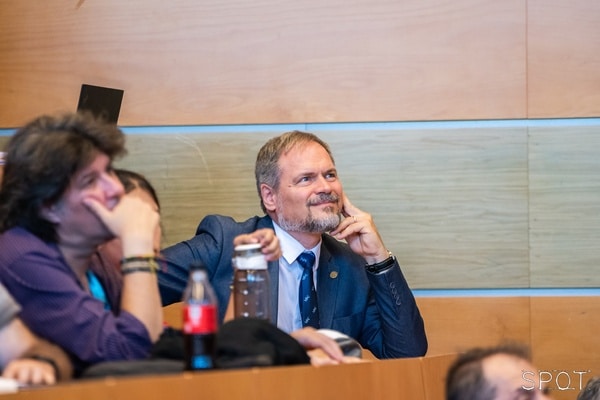
The first workshop was held at the Hungarian Science Festival on 29 November 2022. Were you already thinking about a series of events back then?
When we organised our Telecommunications and Artificial Intelligence workshop in November 2022 as a quasi closing episode of the BME events of the Hungarian Science Festival, we were thinking of a one-off presentation. Our aim was to present current research results, as well as the opportunities and scientific challenges of the near future. The workshop was opened by János Levendovszky, vice-rector for Science and Innovation, and featured presentations by Charaf Hassan, dean of the Faculty of Electrical Engineering and Informatics, Roland Jakab, Head of the AI Coalition, and representatives of several industrial partners. It was great success, therefore, we felt there was a need for more workshops and events like this. Besides the need, there was also a reason for the continuation, as 2023 was the 120th anniversary of the birth of John von Neumann. Our second event, which was organised at the end of March 2023 in partnership with the John von Neumann Computer Society, had already borne his name.
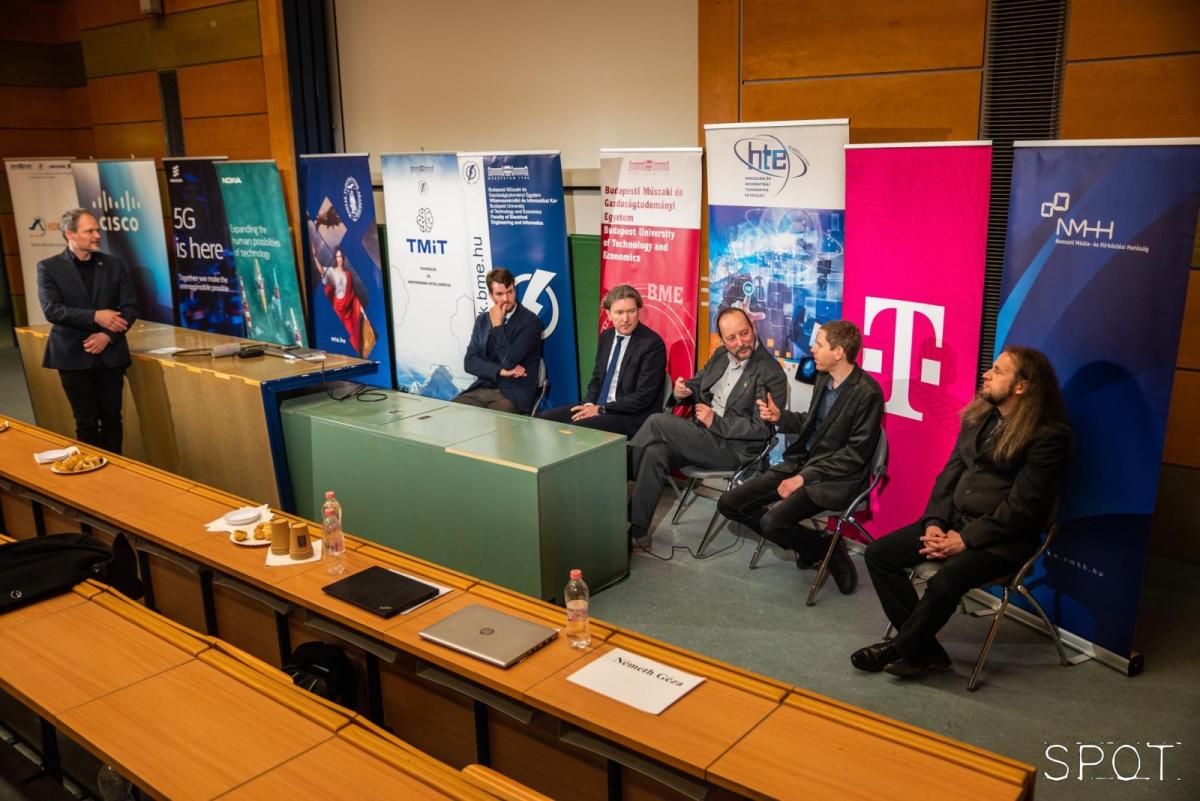
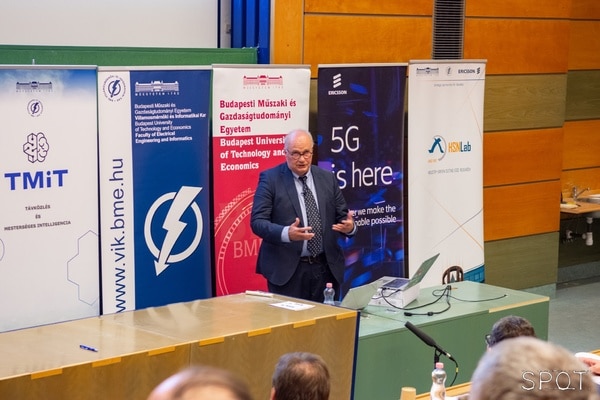

When did you decide to turn a one-off event into a series?
The success of the second workshop led to the decision to carry on with the event as a series. In May, we continued our series with a workshop on large linguistic models, also researched by eminent experts at BME, which was intended to be both professional and educational. Success was not lacking this time either, as not only did the audience fill up the auditorium, but also the online broadcast was streamed in real time to 150 followers. In addition to our colleagues from BME, researchers from the Artificial Intelligence National Laboratory also gave presentations at the event. The afternoon concluded with a much-anticipated panel discussion with: László Mérő, mathematician, Charaf Hassan, dean of BME’s Faculty of Electrical Engineering and Informatics, Bálint Gyires-Tóth, associate professor and Ferenc Vágújhelyi, president of the National Communications and Information Technology Council (NHIT). You can also watch the series on YouTube, and we are pleased that this event, for example, has already been viewed by more than 6,000 people. In mid-June, we held our event titled “An Afternoon with ChatGPT – Community Science at BME”, as part of our cooperation with the Municipality of Újbuda initiated as a science outreach programme for the district’s population, with the aim of providing reliable information to help them get started with ChatGPT. It was a fantastic experience for both the organisers and the speakers that the Simonyi Lecture Hall was full – around 400 people attended!
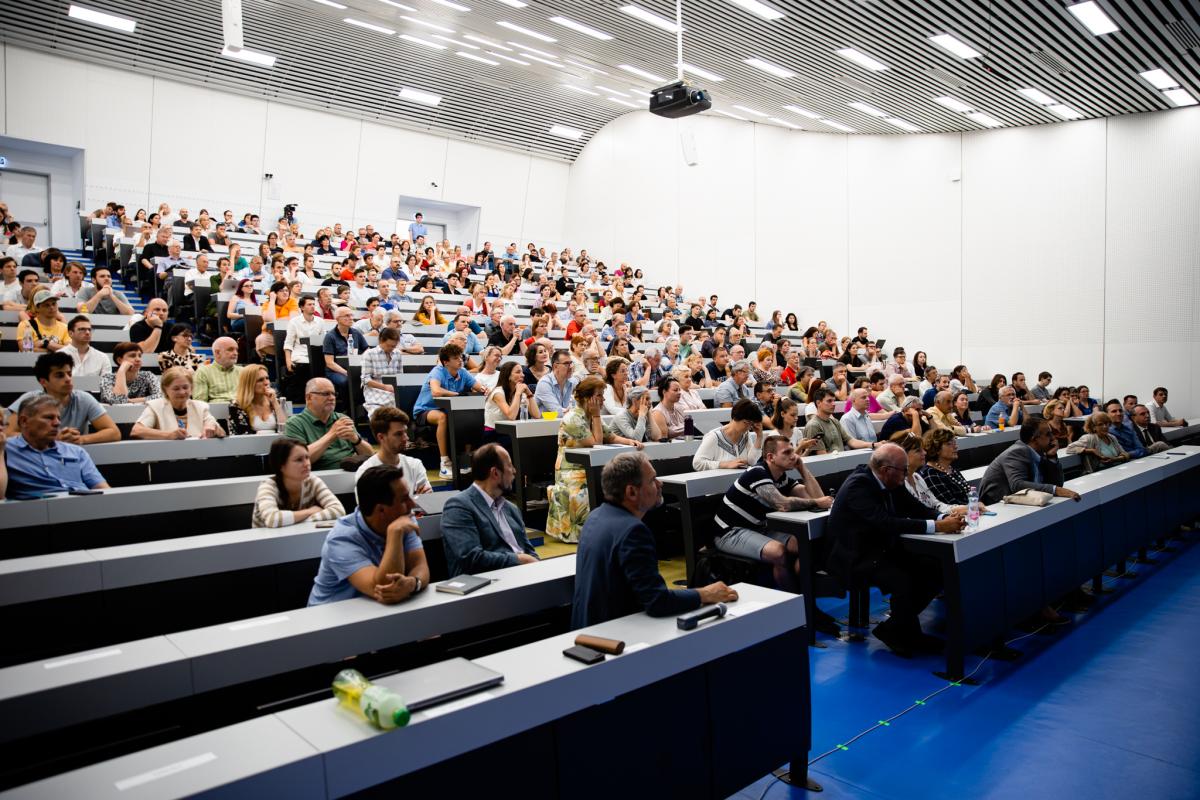
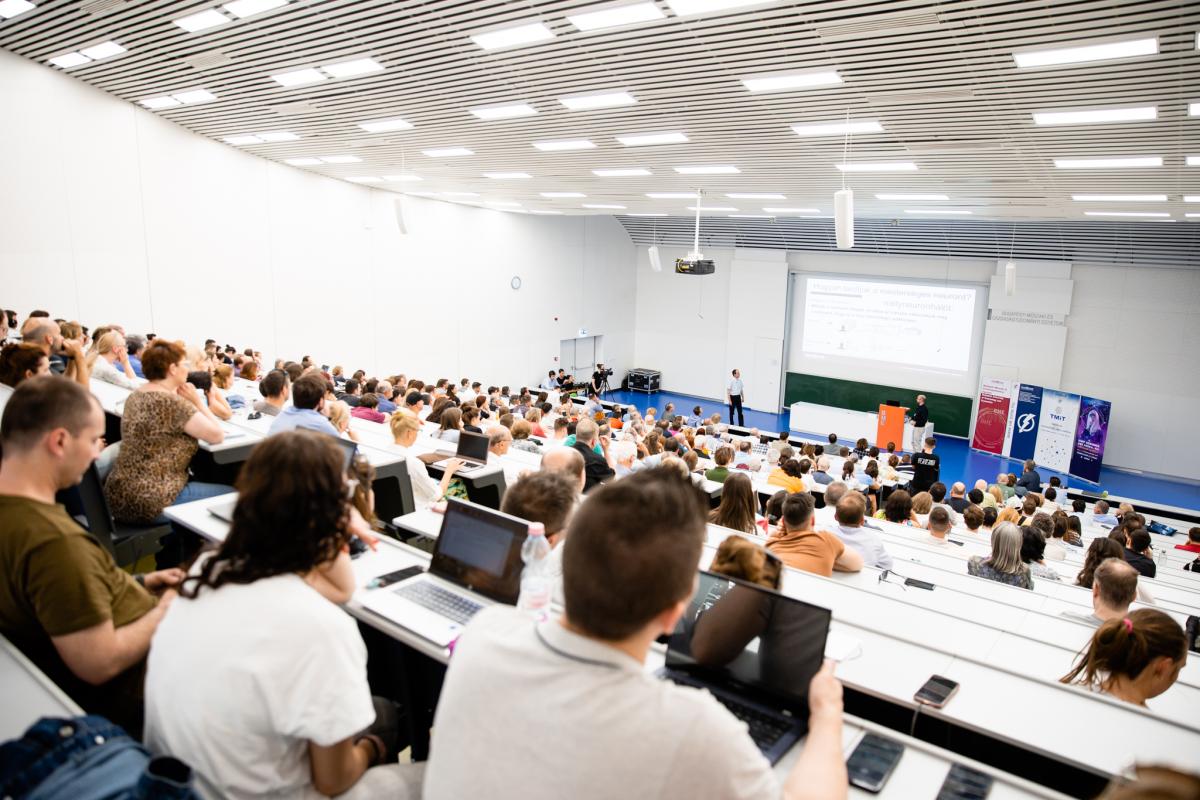
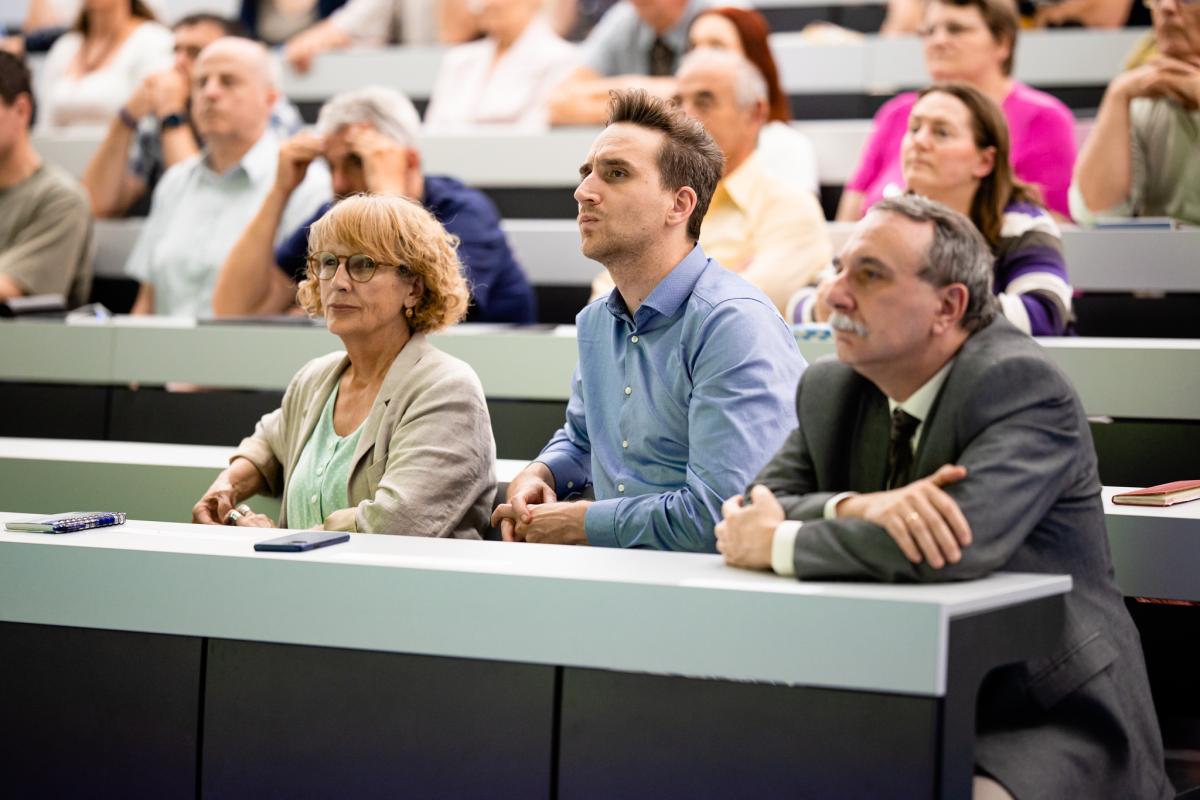
Indeed a series has been born: the next episode already arrived in September…
Yes, and again we have linked it to an anniversary that at first sight seems a bit far from AI, as we organised the event “AI: The Tragedy of Man?” on the 140th anniversary of the premiere of the drama “The Tragedy of Man” by Imre Madách. With the choice of topics, we have further opened up to non-professional viewers and broadened the field of expertise of speakers. This time, we were able to talk about the relationship between man and machine, as well as professional details. In the selection of speakers, we stuck to the tried and tested method: not only did we invite speakers from other universities – for example György Csepeli from ELTE – but also representatives of global companies came to share their experience and knowledge on the topic. Antal Mihályi, representing Google, and János Horváth-Varga, representing Telekom, gave a presentation. Linked to the topic, the BME Department of Telecommunications and Media Informatics has launched a Generative Text, Image and Video application. At our October event, “AI Revolution: Experiences with the Latest Tools”, our workshop was again more professionally focused. Kitti Mezei, assistant professor at the Department of Business Law, Faculty of Economics and Social Sciences at BME, gave a presentation titled “Risks and Opportunities in the Legal Regulation of Artificial Intelligence”. The other speakers were from our faculty, the Faculty of Electrical Engineering and Informatics. The year was closed with our event under the title “Artificial Intelligence, Networks and Communication” on 30 November, as part of the 2023 Hungarian Science Festival, organised jointly with the Hungarian Academy of Sciences. In line with our tradition, in addition to academic speakers, representatives of several industry players – Ericsson, Nokia, Telekom – also gave presentations at this event.
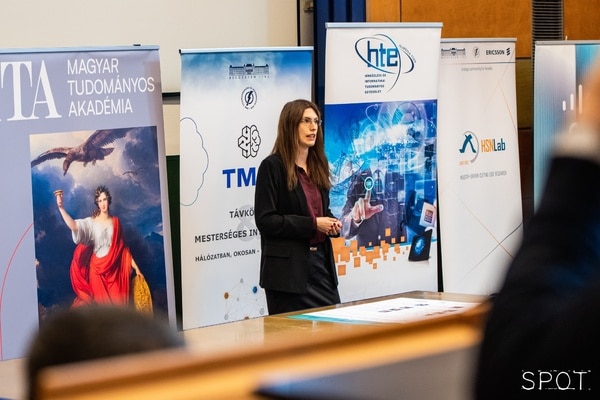
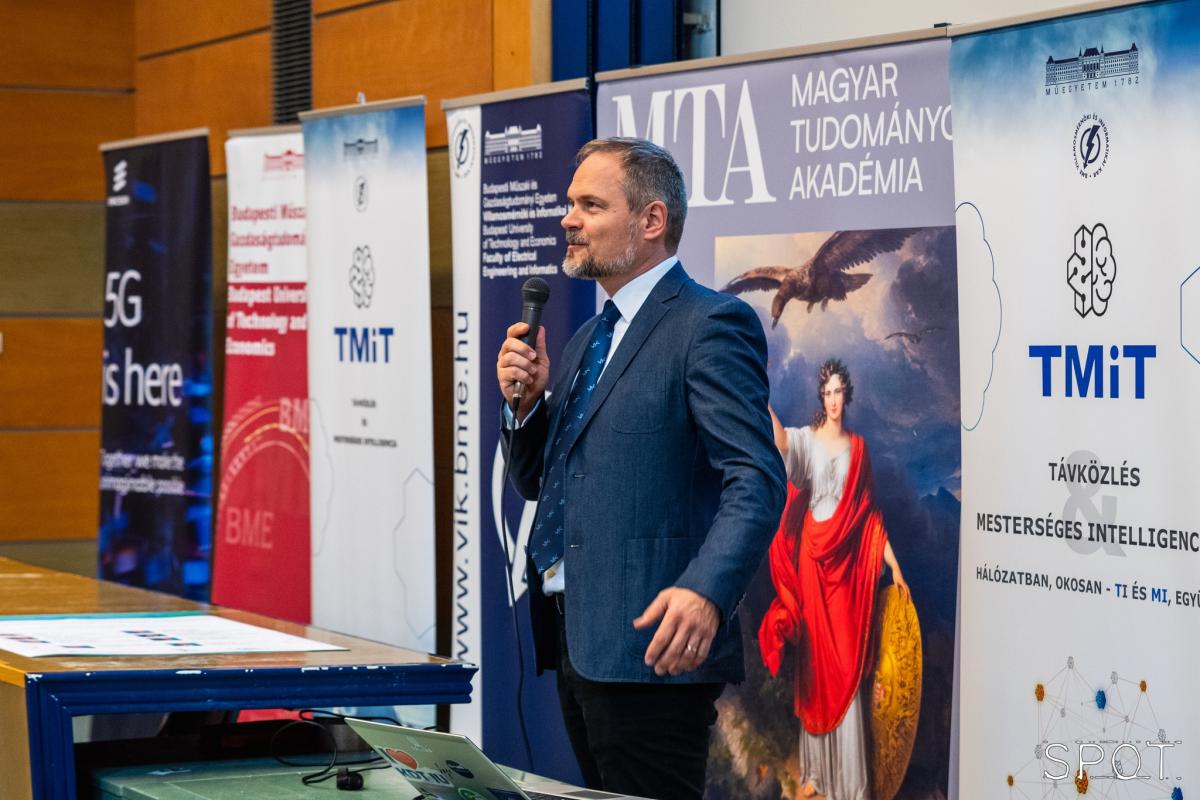
One of the secrets to success lies in the choice of topic. How problematic was it to have such a high calibre of speakers per event?
Choosing a topic was a complex task, as our objectives were also multifaceted. From the first event onwards, the good choice of topics has enabled representatives from industry and academia to attend these events together and talk to each other. The invitation of industry leaders was a success from the very first moment: they were open to the initiative as they saw that they could meet leading professionals here. This has become a self-reinforcing process, as a result of which, as far as I know, this is the only regular presentation series on this topic in Hungary. We had seven events in one year, with fantastic speakers and occasionally between 1-200 people in attendance. At the beginning it was clear that we should invite companies interested in telecommunications, such as Nokia and Telekom, and now I have a long list of companies that have signed up as speakers for this series of events.
Does this mean there will be a sequel?
Yes, we already have the topics and speakers for the first two events in 2024. We will continue in the original direction, i.e. presentations on interesting topics with different approaches (professional and educational, with a hint of community science). One of the first topics will be the role of AI in education, especially in technical higher education, but we will also look at the impact on the whole education portfolio. Presentations will be complemented by an expert round table discussion. We also plan to hold presentations in partnership with the European Digital Innovation Hubs (EDIH). These European Digital Innovation Hubs are one-stop shops to help businesses and organisations of the public sector respond to digital challenges and become more competitive.

